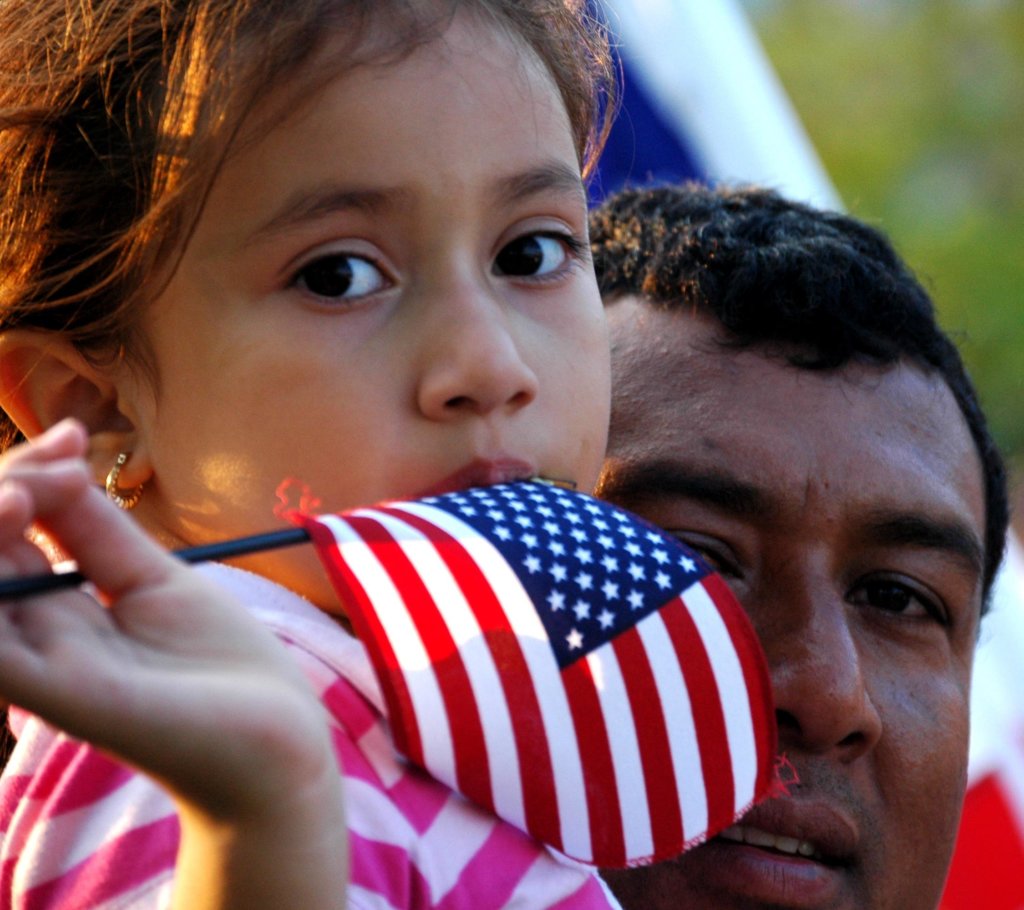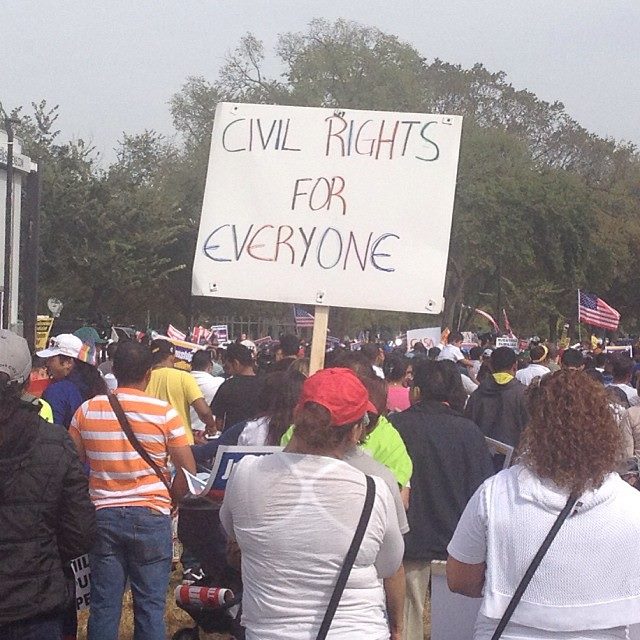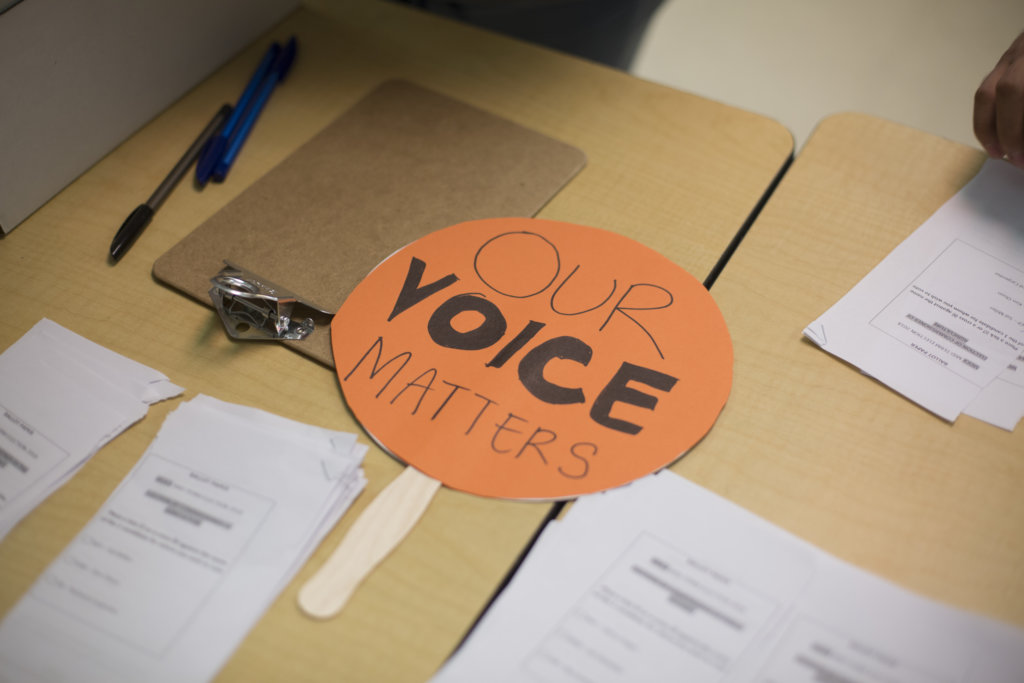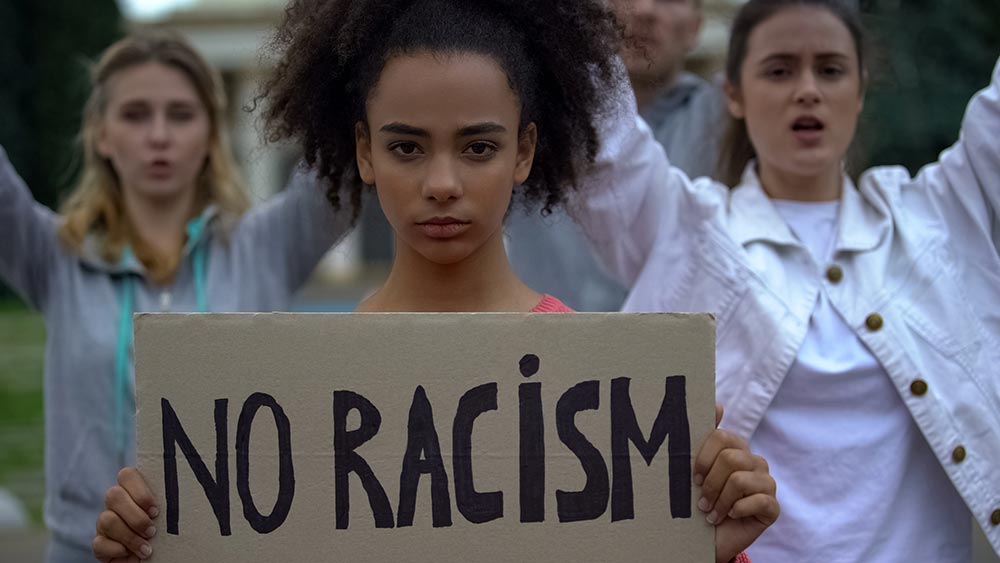The Trump administration is trying to force immigrants to choose between citizenship and food for their children
By Carlos Guevara, Senior Policy Advisor, and Stephanie Presch, Content Specialist, UnidosUS
This blog is the fifth in a series on how Trump’s immigration policies affect all Americans. It is based on a forthcoming report on the effects of Trump’s immigration policy by UnidosUS. You can read the rest of the posts in the series here.
While the Trump administration has frequently claimed that it has no problem with legal immigration, their actions around public charge have shown otherwise.
Keep up with the latest from UnidosUS
Sign up for the weekly UnidosUS Action Network newsletter delivered every Thursday.
The proposed changes to the rule could significantly curtail the ability of individuals who today have a path to a Green Card from doing so. But, more insidiously, the changes to the long-standing public charge rules would mean that many American families could be forced to choose between the health and nutrition of their children—millions of whom are U.S. citizens—and pursuing family unity through our legal immigration system.

Someone who uses SNAP or Medicaid would be considered a “public charge.”
The Trump administration didn’t come up with the concept of public charge, but their proposed change to the rule would drastically expand its definition. Someone is considered a public charge if they, for example, primarily depend on cash assistance from the government for their income.
However, the Trump administration would have this rule include non-cash assistance programs, such as SNAP or Medicaid. This is a significant departure from prior policy guidance, which has, in fact, gone out of its way to clarify that such non-cash assistance is not part of the public charge analysis. Moreover, while the published rule proposal states that family members—including children—receipt of public assistance should not form part of a Green Card applicants’ case, we know anecdotally that families are disenrolling their eligible U.S. citizen kids from these vital programs.
For example, researchers from Boston Medical Center’s Children’s HealthWatch found that participation in SNAP was down in the first half of 2018. David Thomsen, former Health Policy Analyst for UnidosUS, also told Vox that UnidosUS Affiliates across the country have reported that immigrant families and their children approach public benefits they’re legally allowed access to with trepidation. By one estimate, approximately 10.4 million U.S. citizen children with at least one noncitizen parent could be chilled from accessing these assistance programs for fear and confusion around the new rules. Feeding this confusions is an unduly burdensome and clunky “factors test” that ascribes heavy weight to, among other things, family income.
Lawfully present immigrants would bear the brunt of this change, as will people living abroad who wish to immigrate to the United States.
Importantly, and as we’ve discussed before, the proposed public charge rule builds on a growing body of work out of the U.S. Citizenship and Immigration Services (USCIS), whether intentionally or not, has had the effect of limiting or stalling access to our nation’s legal immigration system. Indeed, not only does it appear that USCIS working with the Trump administration to actively make legal immigration more difficult, the agency also recently issued a guidance that would allow it to initiate deportation proceedings for people who applying for an immigration benefit, like a Green Card, but ultimately had their applications denied. We are also concerned about recent reports that USCIS plans to hire dozens of new lawyers and immigration officers to staff a denaturalization task force. But what makes the proposed public charge rule especially cruel is that it needlessly puts the health care and nutrition of millions of U.S. citizen children at risk to advance agenda that seeks to limit the legal immigration—and ultimately family unity—predominantly of communities of color.

UNIDOS US AND OUR AFFILIATES TAKING ACTION ACROSS THE COUNTRY
Over the course of several months, UnidosUS undertook a multifaceted advocacy approach to lift up the harms of this rule, including those to U.S. citizen Latino children. In addition to submitting a thorough, well-researched public comment laying out our community’s concerns, we have worked with coalition partners and our Affiliate network to spur engagement on smaller comments that tell human stories. We were also the only civil right group to advocate directly at the White House’s Office of Management and Budget on the rule, and we helped place the proposed rule in proper context via op-eds and social media posts.
We are also very proud of the several UnidosUS Affiliates that took action in their home states, including TODEC (California); El Centro de Servicios Sociales (Ohio); Comunidades Latinas Unidas en Servicio (Minnesota); Conexión Américas (Tennessee); Hispanic Unity of Florida, La Union del Pueblo Entero (Texas), and Latino Policy Forum (Illinois).
Victor Leandry, Executive Director at El Centro de Servicios Sociales in Ohio, has been presenting on public charge since the comment period opened back in October. It has been challenging, he notes, since at first many in the community don’t know what public charge is.
“I hadn’t heard clients talking about this. Nobody’s even mentioned public charge,” Leandry says. He recalls that one presentation he gave around public charge at a local college in Ohio was met with blank stares and one simple question, “What’s that?”
This wasn’t the case everywhere, and over time it was clear that their advocacy was resonating locally: “I went to another college one night, and that group was really excited about providing their comments on public charge,” Leandry says.
Leandry has taken steps to address the information gap, both by pushing for community forums on public charge and by getting public charge included in the agenda for Agenda Latina, a monthly meeting hosted by the Ohio Commission on Latino Affairs, which includes nonprofit directors and leaders who come together once a year to discuss issues that are important to the Latino community.

El Centro has also been getting the word in their community – which covers the great Cleveland area and beyond – by taking out billboard and radio ads about public charge. El Centro is also looking to start community forums around what the proposed rule change would mean for immigrant families across the state and working on setting up a day of action in Ohio to encourage people to send in their comments on public charge to the Department of Homeland Security.
Similarly, UnidosUS Affiliates TODEC in California and Conexión Américas in Tennessee organized at the local level to educate their communities, as well as encouraging them to lift up their voices.
The information gap that Leandry references is a key part of why UnidosUS has been vocally campaigning against the proposed rule change. This rule would not only undercut our nation’s legal immigration system, but also result in significant harms to the health of millions of American children. UnidosUS has advocated directly with the White House via the Office of Management and Budget’s process, and we’ve conducted several education and outreach sessions with our network of nearly 300 community-based Affiliates.
WHAT HAPPENS NOW
Alongside national, state, and local partners, including our Affiliates throughout the country, we worked to make sure as many comments as possible were submitted to the Federal Register before the December 10 deadline. These efforts led to more than 215,000 comments.
By law, the government must review and respond to all the comments that were submitted before it can issue a final rule. And that could take months or years. In fact, we don’t know when, or if, a new rule will be implemented.
For now, nothing has changed. But we will continue to advocate for our community to make sure this and other harmful Trump proposals don’t come to pass.
